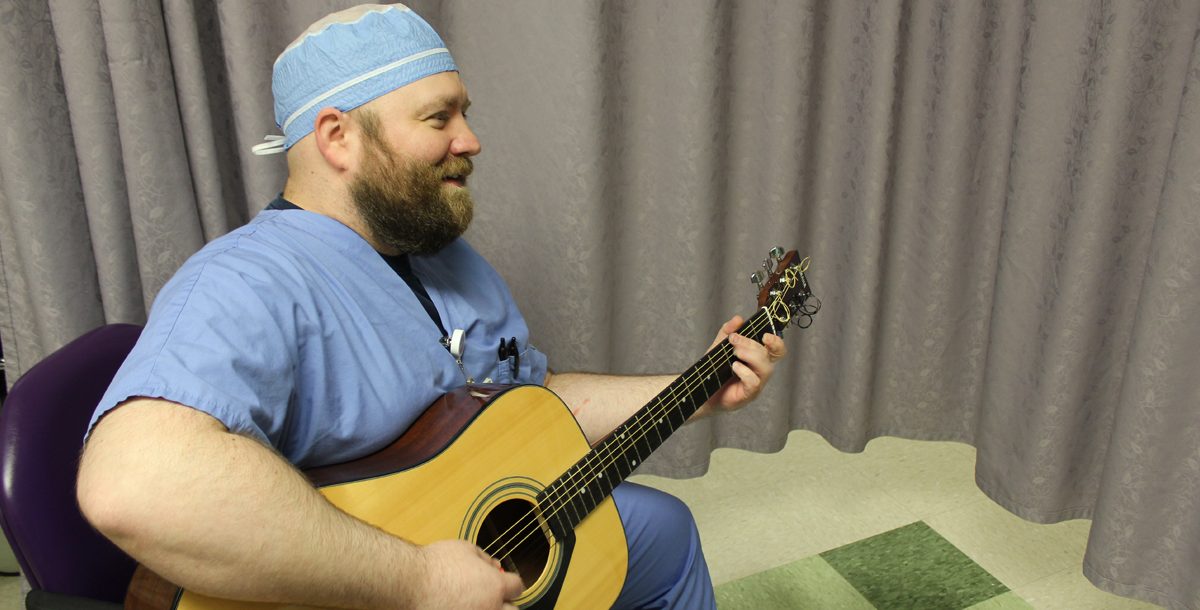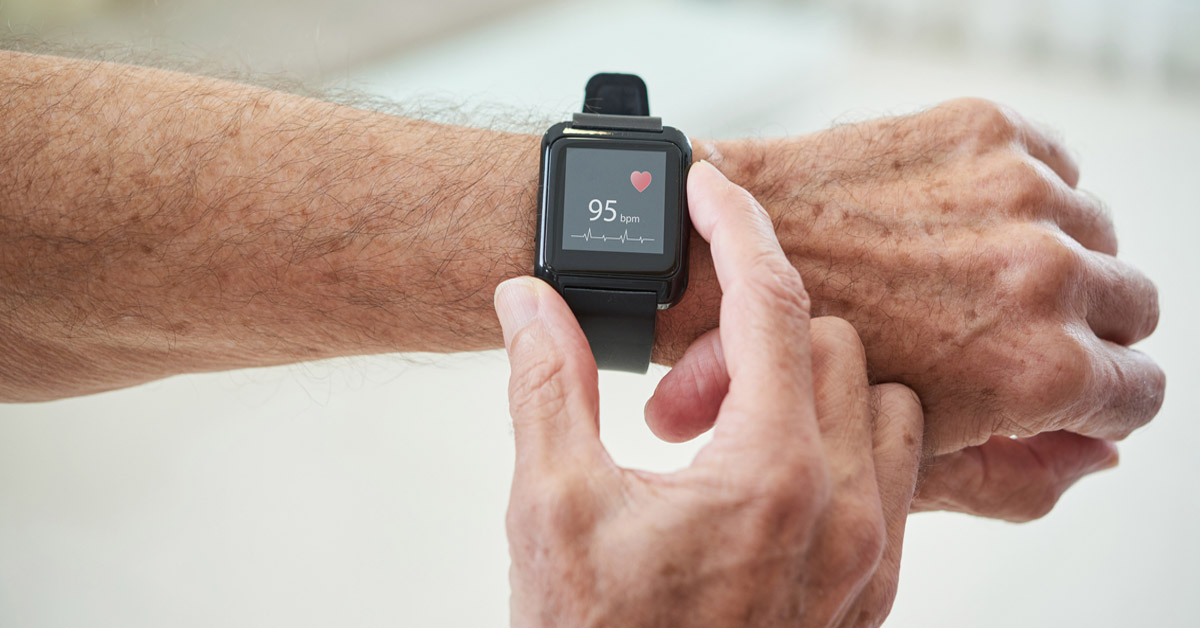For most people a heart catheterization is a procedure to examine how well the heart is working, and not a way to win bets. Then again, Rocky Gibbs didn’t have a typical heart catheterization. He had an experience thanks to the staff at Our Lady of Bellefonte Hospital Heart & Vascular Center.
Rocky collected on his bets because his buddies had wagered that the anesthesia administered prior to Gibbs’ heart cath had the local business owner either misremembering, or outright hallucinating, parts of his experience. Gibbs’ blood pressure had been up, so he visited OLBH interventional cardiologist Michele Friday, M.D. Though Gibbs wasn’t nervous for his appointment, things progressed quickly once Dr. Friday ordered a stress test which Gibbs promptly failed. The erratic heartbeat that became apparent during the stress test worried Dr. Friday enough to recommend an immediate cath procedure to ensure Gibbs’ didn’t have any blockages affecting his heart. “They started that procedure real quick,” Gibbs’ said. “They sent me to the Heart & Vascular Center and I was scared to death.”
What had started as a check-up became unexpected tests of Gibbs’ heart. While waiting for his cath, Gibbs’ nervously chatted with staff members and the subject of music came up. Gibbs’ cousin had played with country-legend Conway Twitty. The nurse with whom Gibbs’ was talking told him the center had a nurse who not only was a fine musician but who would often play for patients to relax them. “I told ‘em to bring him in, I’d love to hear him,” Gibbs said.
Chris Beaver, BSN, has been an OLBH nurse for a decade. He has been playing music most of his life. “My whole family plays,” Beaver said. “I’ve been playing since I was about five years old.” Family get-togethers were virtual jam sessions and Beaver was a quick study of his father, his siblings and other family members. Though guitar is his first and main love, Beaver now plays more than a dozen instruments. The joining of Beaver’s hobby with his career was a happy accident. Beaver would often have instruments with him at the hospital so that during lunch he could run through scales or practice. Soon Beaver found himself receiving requests from patients to play during their procedures.
“When I heard Chris playing I just felt so comfortable,” Gibbs said of the experience. “I thought it was the best thing there ever was.” Before the anesthesia had taken hold, Gibbs found himself very relaxed and more at-ease that everything was going to be OK. “He (Chris) was so helpful,” Gibbs said. “He was so talented. He could be on the road tomorrow but he’s using his talent to make people comfortable.”
“They trust us enough to come here, so we want to help them relax as much as possible to make them feel welcome,” Beaver said. He recalled playing “Amos Moses” by Jerry Reed for Gibbs. In the twilight of his anesthesia, Gibbs had imagined it was a duo that performed the music for him. Perhaps this incorrect memory led Gibbs’ family and friends to not believe the rest of his story. “I told all of my friends ‘you won’t believe the experience that I had that made me feel so good,’” Gibbs said. Many of those friends didn’t.
Dr. Friday captured video of Beaver’s performance, and it was this evidence that finally convinced Gibbs’ friends, and helped him collect on his bets. “They didn’t believe it until they saw the video themselves,” Gibbs said. For his part, Beaver is humble about Gibbs’ praise. “I’ve played for a lot of different people. It was just the first time Dr. Friday caught me on camera doing it.”
Gibbs’ heart cath showed no blockages. Because of his care at OLBH and the medications Dr. Friday prescribed, Gibbs stated that he’s “never felt better in my whole life.” Gibbs’ positive outcome can be attributed to the more than 100 years of combined cath lab experience of the center’s staff, or to the fact that OLBH’s time from when a patient enters the emergency room to when that patient is receiving a cath is nearly half the national average (47 minutes compared to 90.)
While those things are important, what Gibbs’ carries with him, beyond a healthier heart, is not just how he was treated, but the way he was treated. “What a way to make someone feel comfortable during a stressful time,” Gibbs marveled. “I’ll never forget it.”




